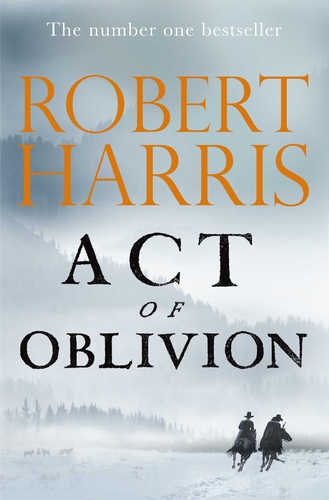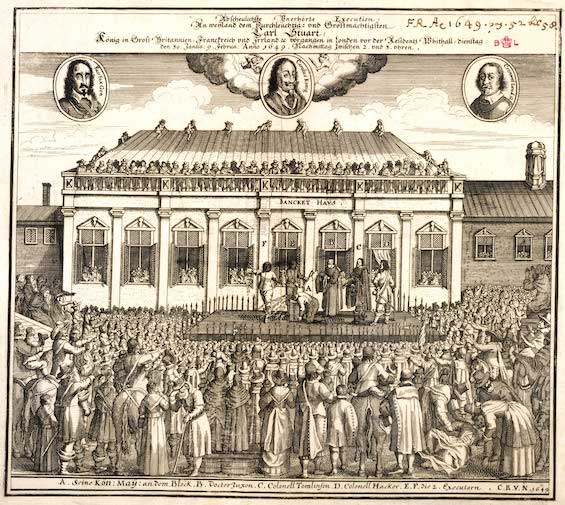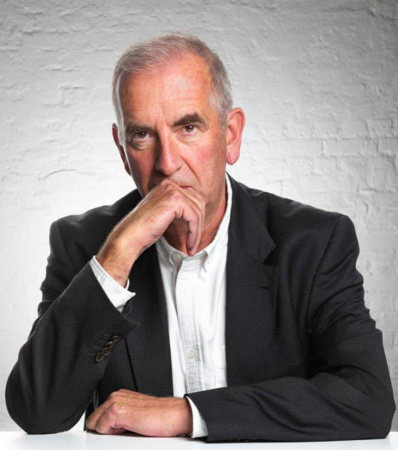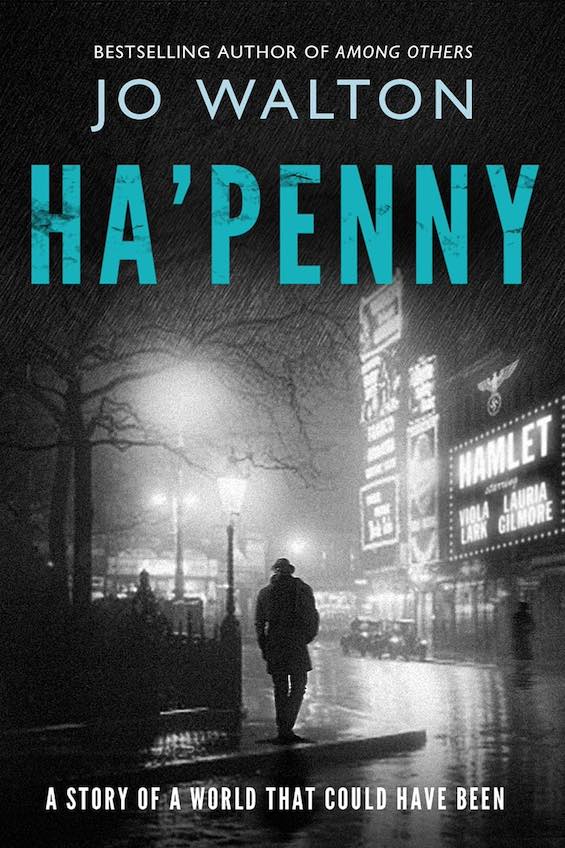
On January 30, 1649, after seven years of the English Civil War, England’s King Charles I was beheaded by order of a Parliament crowded with anti-Catholic religious extremists. They governed as a republic for a decade under a dictatorship. But their experiment in government guided by a radical religion came to an end not long after the death of their leader, Oliver Cromwell (1599-1658). Two years later the late King’s son, Charles II, was restored to the throne. And in short order the new royalist government set out to round up and execute the more than sixty regicides who had collaborated in the murder of the King. Bestselling historical novelist Robert Harris fictionalizes this story in his imaginative new historical novel of colonial America, Act of Oblivion.
Estimated reading time: 6 minutes
A slow-motion manhunt lasting decades
The book details a slow-motion chase scene conducted by ship and carriage, on horseback and on foot. It lasted decades. Although scores of men were charged as regicides by the government of Charles II, most died in exile of illness or old age or were caught and executed in the 1660s. A handful were pardoned, a dozen sentenced to life imprisonment. But two men—Colonels Edward Whalley and William Goffe—fled to the American colonies and were pursued through the wilderness of New England for years by the King’s fanatical agent, Richard Nayler, a clerk to the Privy Council.
As Harris observes in an author’s note at the story’s conclusion, “This novel is an imaginative re-creation of a true story: the tracking down of the ‘regicides,’ the killers of Charles I, the greatest manhunt of the seventeenth century. . . The events, dates and locations are accurate, and almost every character is real, apart from Richard Nayler.”
Act of Oblivion by Robert Harris (2022) 477 pages ★★★★☆

A novel of colonial America that vividly evokes that time and place
The best historical fiction carries us back to a time and place we can only dimly imagine when we read history. We learn about the attitudes and habits that prevail and the sights, sounds, and smells of the time. And Robert Harris does a masterful job of recreating the past in this fashion, whether writing about World War II, the Roman Empire, or, now, seventeenth-century England and America. Act of Oblivion is an accomplished piece of work from one of today’s best historical novelists. It’s rare to come across a book that so vividly evokes life as it must have been lived in Colonial America and Imperial England.
Throughout this novel, our attention stays focused on the three men at the center of the story: Whalley, Goffe, and Nayler. But we also meet members of the fugitives’ family—Goffe is Whalley’s son-in-law—and a number of historical personages besides. In London, the Lord Chancellor, Sir Edward Hyde, and the Duke of York, Charles II’s younger brother. In America, Governors John Endecott (Massachusetts) and John Winthrop (Connecticut) as well as Reverend John Davenport, co-founder of New Haven (then an independent colony). Oliver Cromwell, too, comes back to life in Whalley’s reminiscences.
The Act of Oblivion of the title—more formally, An Act of Free and General Pardon, Indemnity, and Oblivion—was passed by Parliament in 1660 following the restoration of the English crown to Charles II. It was the law under which Richard Nayler operated as head of the Regicide Committee of the Privy Council.
A history of instability
The United Kingdom is widely regarded in the West as a model of stability, with a history of parliamentary rule for eight hundred years. Yet that belief is ill-founded. England has experienced no fewer than four civil wars since the Norman Conquest in 1066. The stability we see today was a long time coming.
- Less than a century after William prevailed at the Battle of Hastings, two rivals contended for the throne in a conflict called the Anarchy, which raged across England for eighteen years.
- Then, in the fifteenth century, the Wars of the Roses kept the country in turmoil for three decades.
- In the seventeenth century, as Harris reminds us, civil war persisted for seven years before King Charles I lost his head.
- The monarch’s son, Charles II, was restored to the throne only in 1660 and Cromwell posthumously executed the following year. Then Charles II himself was overthrown in the Glorious Revolution of 1688, when Holland’s Prince William of Orange was elevated to the throne with his wife, Mary.
Admittedly, political differences in Britain have been settled by peaceful means for the most part during the past 400 years. But, given the ferocious partisanship that prevails there today, it’s anyone’s guess what the future might hold.
About the author

Robert Harris worked as a journalist for many years. He began his career as an author with the publication of five nonfiction books. But he has made his name primarily as a novelist, beginning in 1992 with the alternate history Fatherland. He has written a total of fifteen novels to date. Most of them have been bestsellers, a mixture of thrillers and historical fiction. Harris was born in 1957 to a working-class family in Nottingham. He gained an undergraduate degree from the University of Cambridge, where he was elected president of the Cambridge Union and editor of the student newspaper. He now lives in Berkshire with his wife, with whom he has four children.
For related reading
For a guide to all of Robert Harris’s novels, see The spellbinding thrillers of Robert Harris.
The homilist Christopher Buckley also wrote about these events in The Judge Hunter (A picaresque adventure in Colonial New England and New Amsterdam).
You might also care to view:
- The five best novels about politics
- 20 most enlightening historical novels
- Top 10 historical mysteries and thrillers reviewed here
- Top 10 great popular novels reviewed on this site
And you can always find my most popular reviews, and the most recent ones, on the Home Page.


























